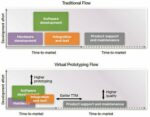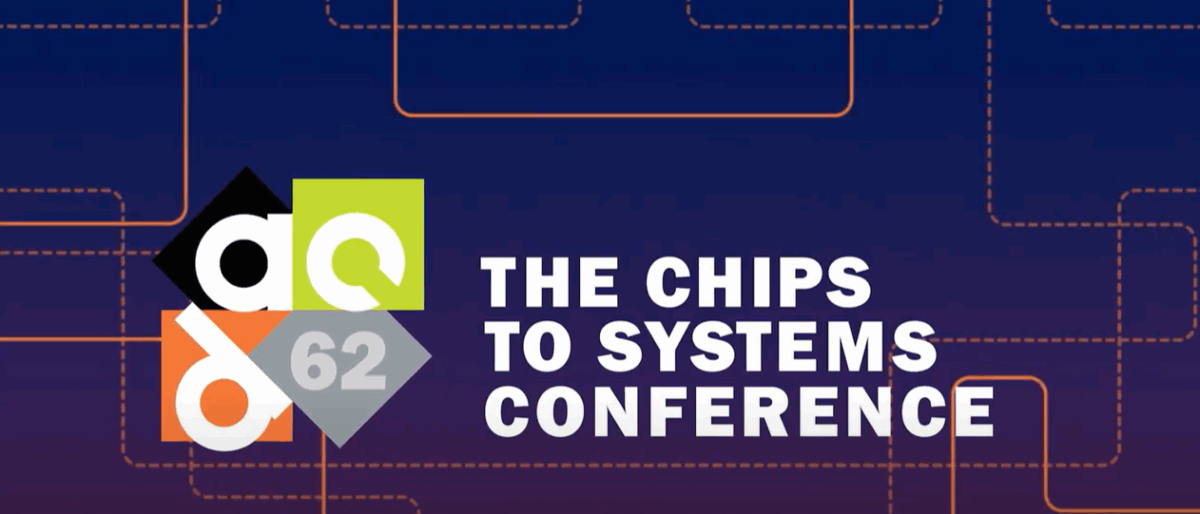Rabin Sugumar was Distinguished Engineer and Chief Architect at Marvell/Cavium and built and led the architecture group for the ThunderX Arm server processor line. Most recently he led the architecture of the ThunderX3 processor, which had industry leading single thread performance and socket level performance at time of … Read More
Tag: RISC-V Cores
SiFive Launches Second-Generation Intelligence Family of RISC-V Cores
SiFive, founded by the original creators of the RISC-V instruction set, has become the leading independent supplier of RISC-V processor IP. More than two billion devices already incorporate SiFive designs, ranging from camera controllers and SSDs to smartphones and automotive systems. The company no longer sells its own chips,… Read More
Podcast EP294: An Overview of the Momentum and Breadth of the RISC-V Movement with Andrea Gallo
Dan is joined by Andrea Gallo, CEO of RISC-V International, the non-profit home of the RISC-V instruction set architecture standard, related specifications, and stakeholder community. Prior to joining RISC-V International, Gallo worked in leadership roles at Linaro for over a decade. He built Linaro’s server engineering… Read More
The Immensity of Software Development and the Challenges of Debugging Series (Part 2 of 4)
Part 2 of this 4-part series reviews the role of virtual prototypes as stand-alone tools and their use in hybrid emulation for early software validation, a practice known as the “shift-left” methodology. It assesses the differences among these approaches, focusing on their pros and cons.
Custom Processor Design with Verification: Insights from Codasip at DAC
At the 62nd Design Automation Conference (DAC) on July 22, 2024, Philip Bena from Codasip delivered a compelling session on processor customization, emphasizing a responsible approach that prioritizes verification. Codasip, a European company with a global presence, offers a unique combination of RISC-V processor IP and… Read More
Pairing RISC-V cores with NoCs ties SoC protocols together
Designers have many paths for differentiating RISC-V solutions. One path launches into various RISC-V core customizations and extensions per the specification. Another focuses on selecting and assembling IP blocks in a complete system-on-chip (SoC) design around one or more RISC-V cores. A third is emerging: interconnecting… Read More
Deeper RISC-V pipeline plows through vector-scalar loops
Many modern processor performance benchmarks rely on as many as three levels of cache staying continuously fed. Yet, new data-intensive applications like multithreaded generative AI and 4K image processing often break conventional caching, leaving the expensive execution units behind them stalled. A while back, Semidynamics… Read More
Formal-based RISC-V processor verification gets deeper than simulation
The flexibility of RISC-V processor IP allows much freedom to meet specific requirements – but it also opens the potential for many bugs created during the design process. Advanced processor features are especially prone to errors, increasing the difficulty and time needed for thorough verification. Born out of necessity, … Read More
Configurable RISC-V core sidesteps cache misses with 128 fetches
Modern CPU performance hinges on keeping a processor’s pipeline fed so it executes operations on every tick of the clock, typically using abundant multi-level caching. However, a crop of cache-busting applications is looming, like AI and high-performance computing (HPC) applications running on big data sets. Semidynamics… Read More
Why Near-Threshold Voltage is an Excellent Choice for Hearables
In the previous blogs on this topic, we’ve seen that utilizing near-threshold voltage (NTV) saves incredible amounts of energy, theoretically up to 10x and in practice from 2x to 4x. But there is a price which makes some applications more suited for NTV than others. This is due to the inevitable performance (speed) loss of NTV as … Read More










